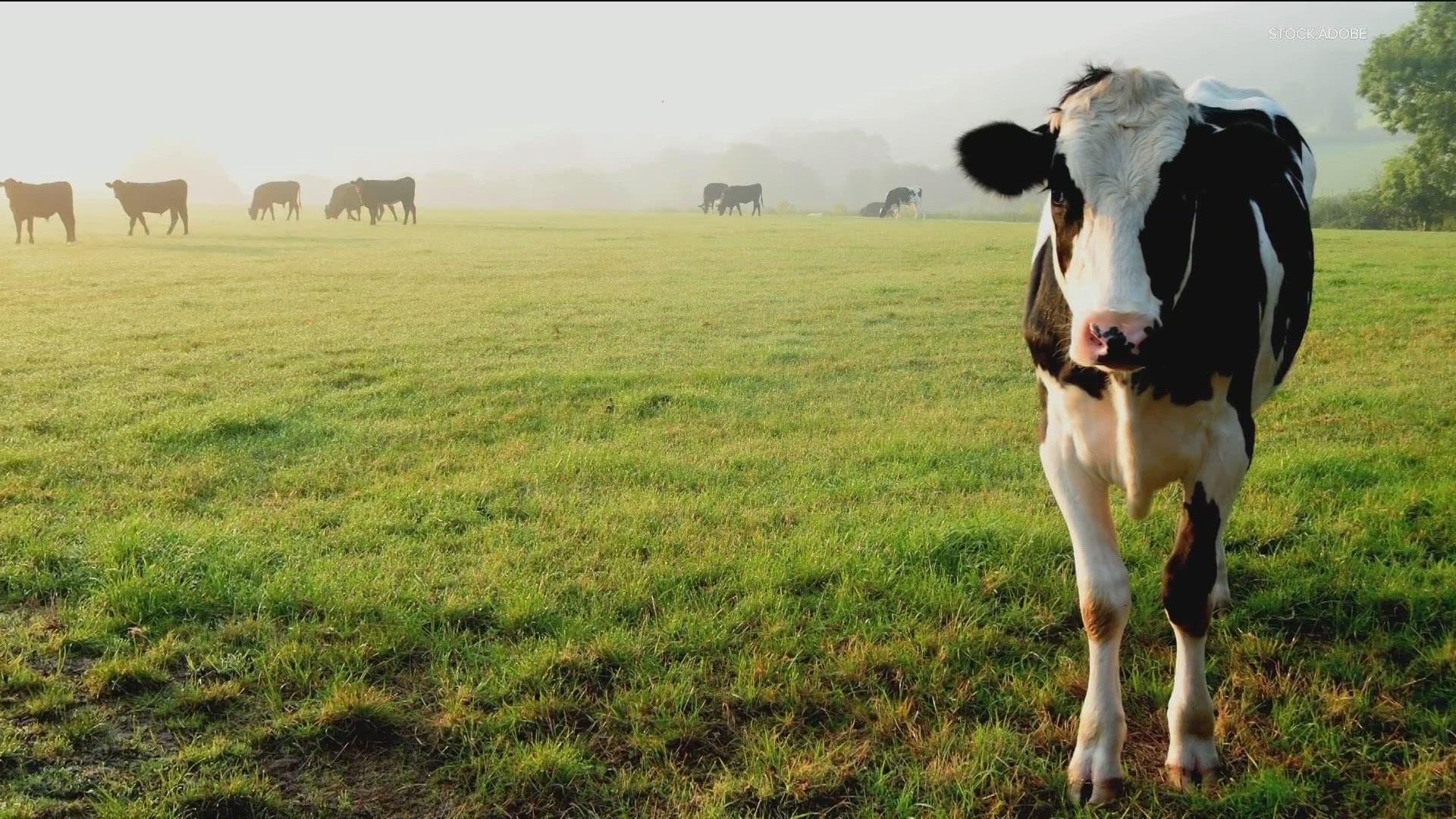ST PAUL, Minn. — The bird flu is back, but it's showing up in different animals - from a goat on a western Minnesota farm to dairy cows in several other states.
The Minnesota Board of Animal Health joins agencies nationwide in following these cases closely, considering they involve livestock for what is believed to be the first time in the U.S.
Federal health officials say raw, unpasteurized milk from dairy cattle in at least three states tested positive for avian influenza, a virus usually found in birds, not livestock.
"In the southwest region especially, veterinarians are on really high alert," said Dr. Katie Cornille, a senior veterinarian with the Minnesota Board of Animal Health. "The virus that was detected, it wasn't a mutated form to cattle. It was the same virus that's been detected in wild birds."
In addition to wild birds, the virus resulted in the death and mass slaughter of more than 246 million poultry worldwide from 2005 to 2020, according to the CDC, and outbreaks have resurged since then.
WATCH: Poultry experts warn of rapidly spreading, dangerous bird flu (2022)
"Highly pathogenic avian influenza, the H5N1, that's the one that's kind of been causing us all the trouble these last years," Cornille said.
Now in Texas, Kansas and New Mexico, officials say the bird flu was found in older cows, and that symptoms include decreased lactation and low appetite. Cornille says it's important to note the experts are working to confirm whether the virus is what caused their symptoms.
This comes a week after at least one goat on a western Minnesota farm was diagnosed with bird flu following an outbreak among poultry on that farm.
Farmers are required to only allow milk from healthy animals to enter the food supply, and milk from sick animals is destroyed.
"At this point, there's really low concern from a consumer perspective," Cornille said. "Pasteurization of the milk you get in the store and commercial milk is extremely effective at inactivating viruses."
Still, she says Minnesota farmers should take some basic biosecurity precautions.
"When adding animals to your herd, making sure to quarantine them for 21-31 days before introducing them to the other animals just to make sure they don't get sick," she said.
In late 2022, bird flu infections were reported in bears in Alaska, Nebraska, and Montana. This past December, it was also found in a polar bear. This was the first time an Arctic animal died from the virus.
WATCH MORE ON KARE 11+
Download the free KARE 11+ app for Roku, Fire TV, Apple TV and other smart TV platforms to watch more from KARE 11 anytime! The KARE 11+ app includes live streams of all of KARE 11's newscasts. You'll also find on-demand replays of newscasts; the latest from KARE 11 Investigates, Breaking the News and the Land of 10,000 Stories; exclusive programs like Verify and HeartThreads; and Minnesota sports talk from our partners at Locked On Minnesota.
- Add KARE 11+ on Roku here or by searching for KARE 11 in the Roku Channel Store.
- Add KARE 11+ on Fire TV here or by searching for KARE 11 in the Amazon App Store.
- Learn more about the KARE 11+ app for Apple TV in the Apple App Store.
- Learn more about KARE 11+ here.
Watch more local news:
Watch the latest local news from the Twin Cities and across Minnesota in our YouTube playlist:

